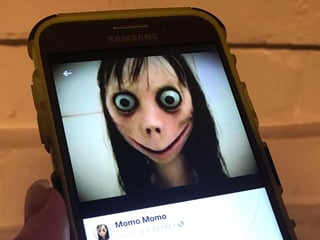No evidence Momo challenge is a risk to British schoolchildren, Parliament hears


Commons Leader Andrea Leadsom pointed to children's charities saying reports of a ghoulish figure being connected to messages urging self-harm and suicide is a hoax.
Yesterday The News reported that Hampshire police’s education team had sent an email about the so-called Momo challenge to schools in our area saying that it had been linked to ‘several deaths around the world’.
Advertisement
Hide AdAdvertisement
Hide AdHowever The Guardian’s media editor Jim Waterson wrote that there is ‘no supporting evidence’ for claims linking any deaths with the Momo challenge.
With the quoted number of deaths the same as an ‘unproven’ figure that was linked to a similar viral ‘challenge’ called the Blue Whale from several years ago.
The phenomenon was raised in Parliament today by Tory MP Douglas Ross (Moray), who asked for a debate on online safety after being contacted by worried constituents.
He said: ‘Can we have a debate and allow the Government to explain what more we can do to protect and educate young people about the scourge of these online dangers?’
Advertisement
Hide AdAdvertisement
Hide AdMrs Leadsom said the ‘appalling’ challenge was ‘one the Government is extremely concerned about’ and new laws were being drawn up to force internet companies to act to protect vulnerable users, including children.
However, the Commons Leader also flagged up how charities were telling her there was ‘no confirmed evidence’ Momo had led any children in the UK to self-harm.
She said: ‘We've been very clear that more needs to be done to protect young people online, including from cyber-bullying and suicide and self-harm content, and internet companies do have a responsibility to their users.
‘The forthcoming online harms white paper will set out a range of legislative and non-legislative measures to keep UK users safe online.
Advertisement
Hide AdAdvertisement
Hide Ad‘In the case of Momo, organisations including the Samaritans, the NSPCC and the Safer Internet Centre have said there is no confirmed evidence the Momo phenomenon is posing a threat to British children.’
